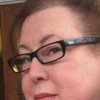There may be atheists in foxholes, but apparently I am not one of them.
When my brother told me my mother was really going to die, that there would be no amazing reprieve this time, I got the answer to a question I’d been asking most of my life.
I always wondered if, when my parents died, I would pray, talk to God, and find some comfort in something outside myself.
It was the worst thing I could think of, the death of my parents, worse for me than any physical threat. As a small child, I stood at the window and wept if I heard sirens when they were out for the evening, convinced that they had been killed. The loss of either or both of them, although inevitable, was the hardest thing imaginable, the complete destruction of all that I believed to be stable and good.
It was never clear whether I would be atheist or believer in that unavoidable foxhole of loss. My spiritual life was shaped by my believing-but-not-very-observant Jewish mother and my lapsed Catholic-turned-atheist father. My brother and I experienced everything from Passovers, chopped liver and menorahs with my mother and her family to Catholic mass with my father’s mother.
I received information about religion and spirituality that was contradictory, non-directive and honest. Organized religion, according to my father, was the root of most of the evil and suffering in the world. He believed that “religious” people unwilling to question doctrine, or to offer real help to those in need were sheep and hypocrites. (He also took my grandmother to mass every Sunday, and genuflected before entering the pew at her funeral).
My mother believed in God, and she placed great value on keeping Jewish traditions and history alive. She was also as open and ecumenical as my father was not; in the later years of her life she and I discussed everything from Jesus to angels. She and I shared the belief that faith can be a great blessing, but that religion was absolutely not essential in raising moral children who felt a duty to serve.
My brother and I turned out pretty well, we are both personally and professionally dedicated to helping other people, and we did it all without threat of hell, excommunication or judgment of any kind. We did it because our parents modeled it, demanded it, and made us want to be good people.
Left to my own thoughts and choices, I experimented, sampled, and studied. I believed there was something greater than our little lives. It could all be a series of accidents from The Big Bang forward that created the beauty of spider webs, seashells and snowflakes. Everything could be science, all gravity and stardust and evolution. I believed in the scientific facts, but I, personally, wanted something more.
So I flirted with Catholicism, Judaism, Wicca, some vague amalgamation of Taoism and Other Asian Stuff. I joined a Protestant Church, but it was only a couple of years before rebellion stirred. I had problems with The Bible. I loved the language and poetry in The Old Testament, and there were lessons of universal usefulness in both Testaments. If everyone actually did the stuff Jesus said to do, we would have peace, justice, and enough love and food and support for everyone on earth.
On the other hand, I did not believe the stories in The Bible. I am horrified by dogma, and depressed and discouraged by the internecine squabbles within my own church and the entire world of organized religion.
I don’t believe in heaven. (And I’ve tried). I just don’t. I find it hard to understand why we would spend our lives on this beautiful earth trying to get someplace else. I envy people who believe in an afterlife where we are reunited with our loved ones, because it is a beautiful idea that gives great comfort.
I don’t think it’s silly, I don’t judge it, and I just can’t quite get there in my mind.
When I found Buddhism, it fit like an old slipper. It made sense, and it focused on presence and compassion instead of dogma. The Noble Eightfold Path is basically being a good human being, with an emphasis on peace, compassion and awareness. It’s entirely compatible with the morality rules of most other religions with rather less crime and punishment.
You can be a Christian who meditates, a Muslim who believes that your charter is compassion, or a Jew who believes that all we have is this moment, now, this breath, this sky, this soaring joy or stabbing grief.
And as it turned out, the answer to the question “what will I do when my parents die?” was answered with effortless grace.
Sitting next to the hospital bed as my mother’s breaths grew farther and farther apart, I held her hand and found that I had focused on my own breathing. When I breathed in, I imagined myself drawing in her suffering, her fatigue and her long struggle.
When I exhaled I sent her a wave of peace and love. It was a version of Buddhist Tonglen, or “giving and taking,” and for hours I did nothing more than sit and breathe as she breathed, not begging, pleading or clinging, simply focusing on her transition.
There may be atheists in foxholes, but apparently I am not one of them. During those last hours, I believed that the universe breathed with me. It was neither the stark atheist nothingness of stardust and gravity, nor the embrace of some omnipotent God.
It was a current of love and humanity that flowed second by second, like the air beneath a leaf or a river in its bed, connecting us as long as we were both breathing, finally trailing off to leave me fully alive, present, and at peace.
Like elephant spirituality on Facebook.
Ed: Bryonie Wise











Read 6 comments and reply